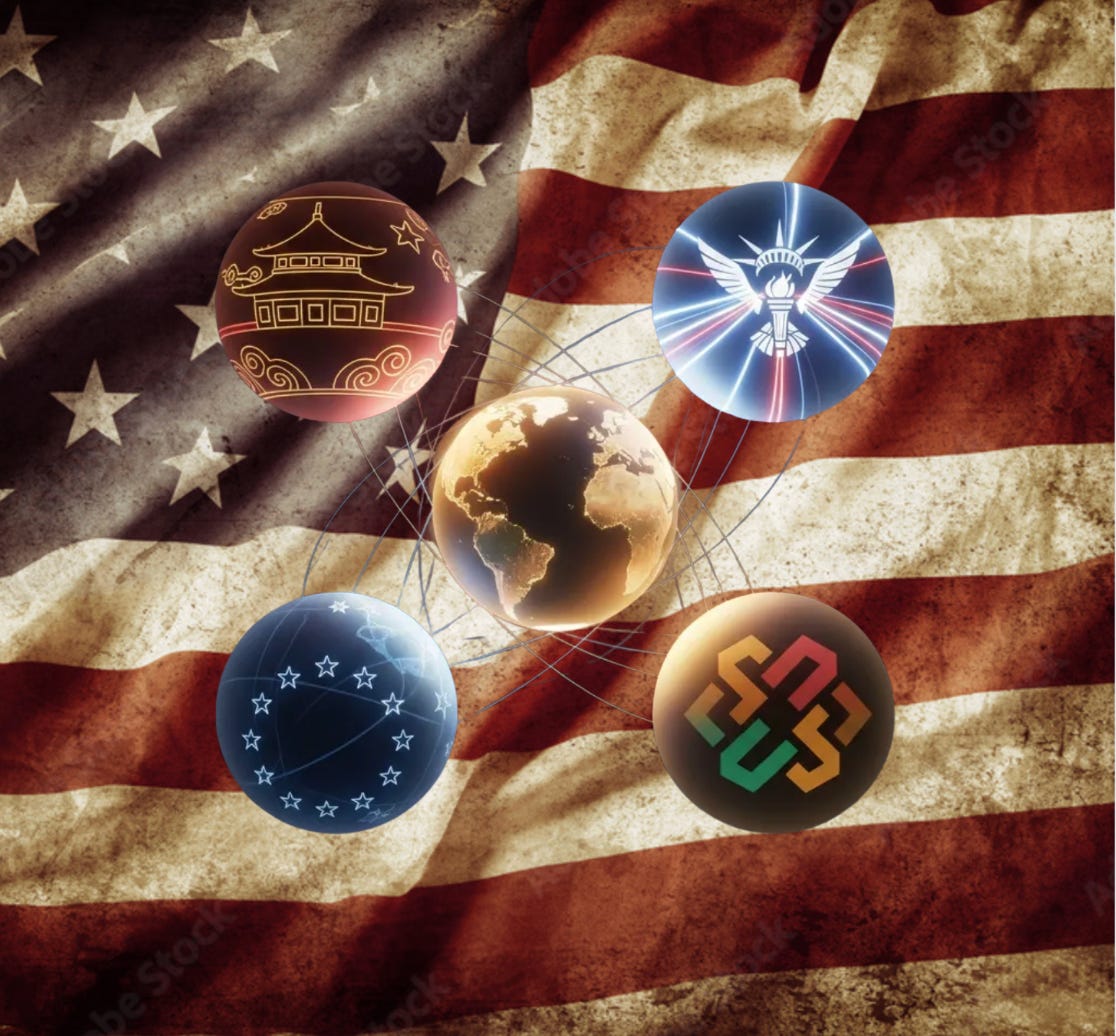Friday Edition — The United States: Reinvention and Renewal
Four powers, four choices, one world
Will the United States still be a global power? Absolutely. It is a nation built to reinvent itself.
Every century or so, the United States transforms. It began as a colony and transformed into a democracy. It turned from an agrarian slave economy into an industrial power. It reinvented itself from a plutocracy in the largest middle class in history. Ea…



